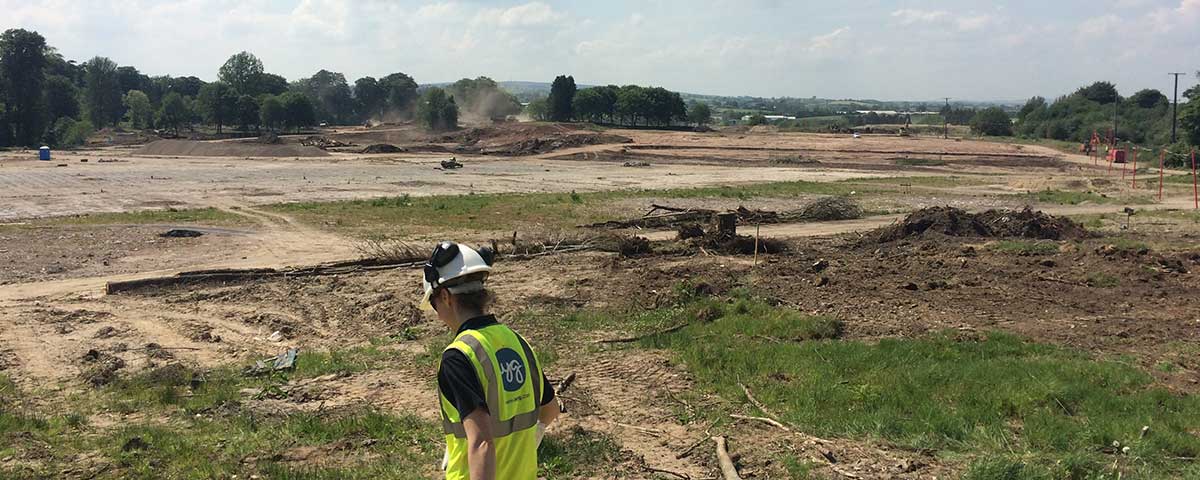
Tetra Tech’s innovative approach to remediation has saved Northern Ireland’s Department of Education more than £800,000 on its flagship Strule Shared Education Campus project.
The Department of Education is currently redeveloping a 120-acre brownfield site in Omagh to provide shared educational and sporting facilities for up to 4,000 students. The development represents one of Northern Ireland’s most significant educational infrastructure investments in recent years.
A historic release of fuel oil at the former barracks site had resulted in the contamination of shallow soils and groundwater. A previous contaminated land risk assessment report identified a risk to a major watercourse located around 30 meters from the contaminant plume area and recommended significant remedial works. When tendered, this remediation work was priced at more than £800,000.
The Department of Education appointed the Tetra Tech team prior to starting the proposed £800,000 remediation programme to peer review the risk assessment report and remediation contract. Our role involved a detailed technical review of all site data and related risk assessments which we completed within two weeks. We identified alternative approaches to sampling and data interpretation as well as overly conservative assumptions in the risk assessment which, in our professional opinion, had led to potentially unnecessary, uneconomic and impractical remediation recommendations.
Following the peer review, Tetra Tech completed an additional investigation and completed low flow sampling from historical and newly progressed boreholes which indicated contaminant concentrations often a number of orders of magnitude lower than those reported historically. This was attributed to the adoption of good practice and appropriate sampling techniques applicable to the contaminant occurrence.
Our team of experts further characterised the contamination and carried out a quantitative risk assessment. We then presented a robust case to the regulatory authorities indicating that, in our opinion, the contamination did not pose a significant risk to the nearby watercourse. We proposed a programme of monitoring during the project enabling works (over approximately 12 months) to further demonstrate an absence of risk and support contaminant degradation through natural attenuation via the collection of additional contaminant and groundwater chemistry data
Our solution was accepted by the regulatory authorities and supported by multiple lines of evidence. This included spatial mapping of various groundwater chemical markers and deployment of bio-traps to assess subsurface microbial activity and demonstrate evidence of contaminant degradation via natural attenuation.
Michael Boyd, Head of Geo-Environmental at Tetra Tech commented:
“We realised significant cost and programme savings for the Department of Education and delivered a more sustainable remedial solution for all involved. We frequently provide third party review and independent advisory services for our clients. As in this case, this often brings significant commercial benefits to a project.”
Patrick Higgins, Principal Geo-Environmental Consultant at Tetra Tech, added:
“The project demonstrates our ability to work collaboratively and efficiently as part of the wider consultancy project team. The benefit of good site characterisation cannot be underestimated in our understanding of risk and the subsequent requirement for or scope of remediation works.”
Alan Dew, Principal Geo-Environmental Consultant will be talking about his involvement in the project as he joins other guest speakers at the Brownfield & Contaminated Land Conference in Belfast on the 19th April. Download the PDF programme here >>.